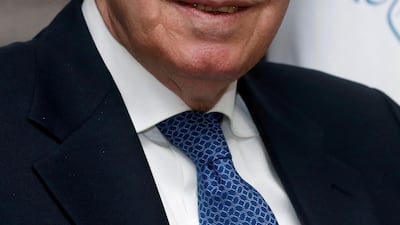Lebanon will run out of money in late May to subsidise imported basic goods, the caretaker finance minister said.
"The cost of wasting time is very high. With every delay, it becomes higher," Ghazi Wazni told Reuters.
Lebanese officials had already warned that the central bank could not indefinitely fund subsidies as it is running out of foreign currency reserves amid an economic crisis.
The Lebanese government, acting in caretaker capacity for the past eight months, has failed to enact reforms required to receive financial assistance and debt relief from international lenders.
With unemployment rising and real incomes shrinking because of a drastic depreciation of the Lebanese pound, Beirut's subsidies regime has served as a social safety net for the poor. But it has also drained the Central Bank's foreign currency reserves.
Experts say that the government’s failure to find a long-term solution to replace subsidies may cause dramatic shortages, more poverty and further empower a political elite widely blamed for Lebanon’s economic collapse.
“People will not survive this. Prices have already tripled in one year,” said Rayan Khatoun of the Kilna Yani Kilna movement, a grass-roots organisation that has been helping the needy since a financial crisis hit Lebanon in late 2019.
“We used to help 300 families last year, this year we are helping more than 1,000,” she said.
“The demand for help is huge and even with the subsidies, it’s impossible for many to afford the basics.”
The Lebanese pound has lost more than 85 per cent of its value since 2019 after decades of economic mismanagement. As a result, the poverty rate in Lebanon has more than doubled since 2019 to 55 per cent of the population, according to UN data.
The Central Bank has $15.8 billion in foreign currency reserves, according to Mr Wazni, with subsidies on a wide variety of products draining up to half a billion dollars per month.
Should subsidies be lifted, prices may rise by five or six times, leading to chaos and violence, said researcher Kamal Hamdan, head of the Consultation and Research Institute in Beirut.
But the subsidies programme is not sustainable, he said.
“I can get behind the optimisation of subsidies as a short-term solution for a limited time, while the government is implementing an exit strategy,” Mr Hamdan says.
“But if it is perpetually renewed and there is no political change we will be giving this political class a chance to keep ruling the country and extend their clientelist network,” he said.
Mike Azar, a debt finance adviser and a former lecturer at John Hopkins School of Advanced International Studies, said that even if the government managed to fund the ration cards for low-income families, it still needed to find money for imports or else there would be massive shortages.
“If the Central Bank stops selling dollars, how will wheat importers or the country’s electricity provider buy foreign currency to import merchandise?” he said.
Mr Wazni said he had drafted a plan to halve the $6bn annual spending on subsidies.
It includes lifting subsidies for fuel and medicine, lowering the number of subsidised foods from 300 to 100, and granting 800,000 poor families a special ration card, he told Reuters.
The plan is set to be highly unpopular and requires parliament approval, which is unlikely to be swift.
Attempts at reform have been impeded by the Central Bank itself, as disputes between its governor, Riad Salameh, and Mr Wazni sank the forensic audit demanded by international lenders as a condition for debt relief.
Lebanon’s sectarian political leaders are widely accused of corruption and have also stood in the way of reform.
Mr Azar said lack of oversight had made the current subsidies programme vulnerable to exploitation.
“The extended subsidies programme over the past year has been extremely wasteful, it has helped some segments of society more than others: smugglers, traders, even money launderers,” he said.
In the past year and a half the smuggling of subsidised goods from Lebanon to Syria has increased, sparking outrage among Lebanese.
Authorities have not been transparent with the public about the country's finances, warning instead about worse days to come without providing an exit strategy, Mr Azar said.
At the beginning of the crisis, Mr Salameh said on television that the national currency was "in its best shape"; last year President Michel Aoun told the press the country was headed to hell.
“Nobody knows what authorities are planning to do and their numbers don’t add up,” Mr Azar said.
“We’ll get to May and they’ll say we will run out of money for subsidies by June. We’ll continue this way until all the money runs out.”


